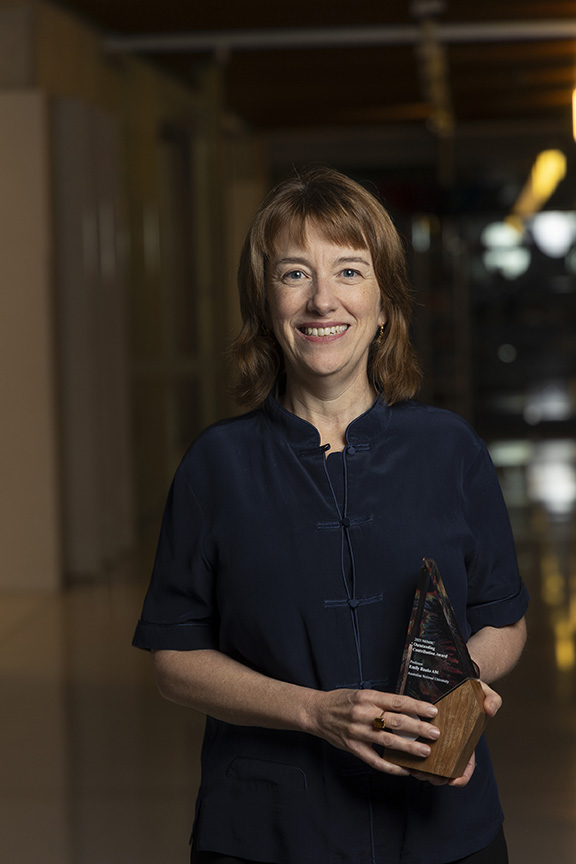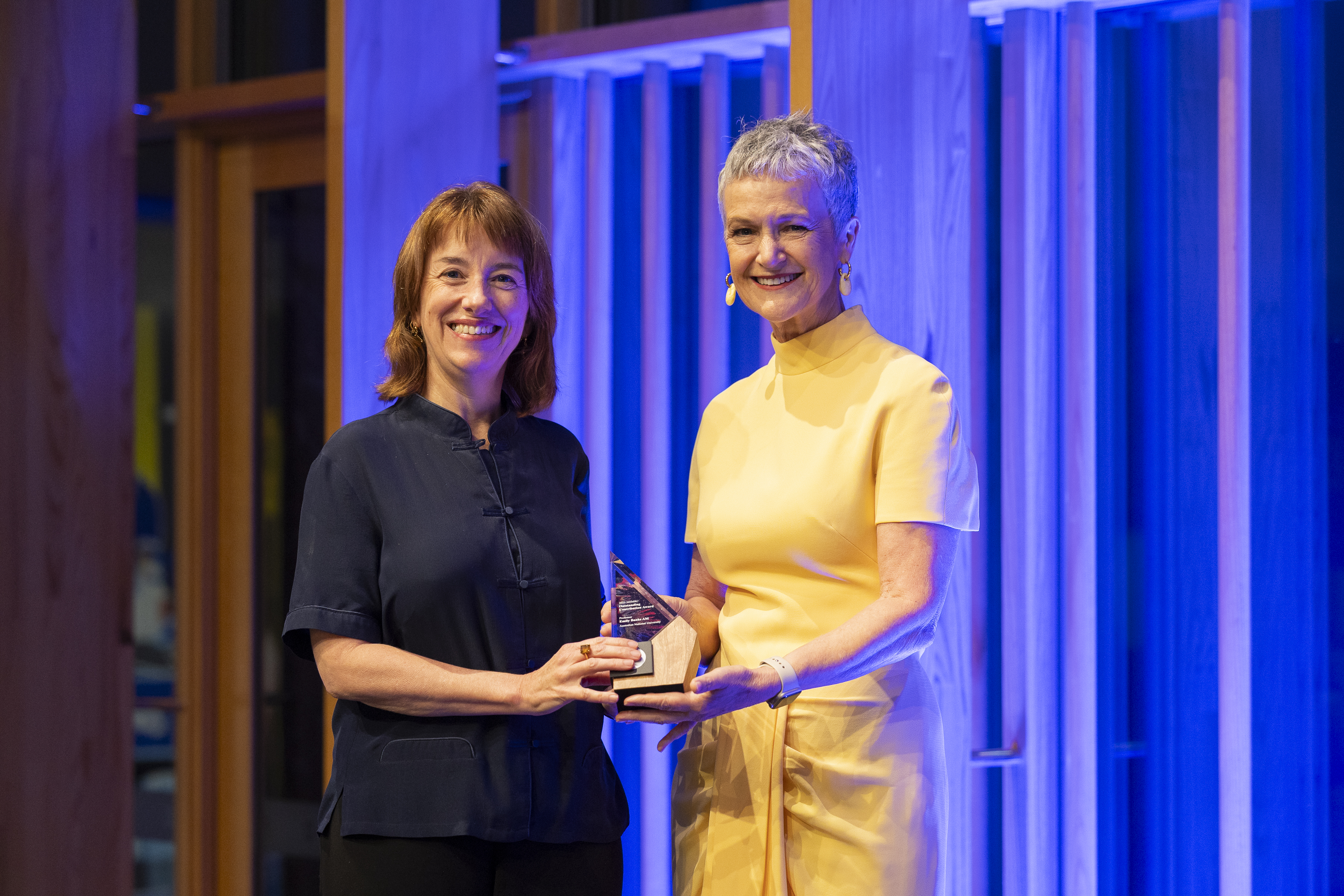Professor Emily Banks AM, recipient of the 2025 NHMRC Outstanding Contribution Award, is a public health physician and epidemiologist working towards improving health and healthcare, at an individual and population level. With interests spanning chronic disease, tobacco control, Aboriginal and Torres Strait Islander Health and healthy ageing, Professor Banks’s extensive research into population health is changing public behaviours, guiding healthcare professionals and having a significant impact in the community.
Public health is about applying evidence to improve health and wellbeing at scale, through the organised actions of society. It focuses on prevention and early detection, as well as improving health services and broader health outcomes. For public health physicians, their ‘patient’ is the population rather than the individual, noting that improvements in population health often reflect the granular activities of many millions of individuals.
“While public health draws on evidence and means of taking action from almost every discipline – including clinical medicine, law, economics, education and sociology – epidemiology is a major source of evidence for public health.”

I first became interested in epidemiology and public health at medical school. I found that almost everyone I spoke to who was affected by illness wished that they had never had it in the first place, and that most were suffering from highly preventable conditions.
I also became fascinated by the use of quantitative data to generate evidence and the pragmatic application of that evidence to the population.
“The logical outcome was specialisation in public health medicine and becoming an epidemiologist.”
My first job was at the University of Oxford, working to set up the Million Women Study with the late Professor Dame Valerie Beral AC FRS. She introduced me to the wonderful virtuous epidemiology/public health cycle, whereby large numbers of people from the community are willing to share their experiences to inform collective action on things they care about.
“1.38 million women joined the study because they wanted answers about hormonal therapy for the menopause and breast cancer and its findings contributed to more judicious use of therapy and unprecedented falls in breast cancer incidence in many countries, including Australia.”
The findings also showed the power of large-scale data, including collaborative data resources that can be shared. Since then, I have been able to work on public health across a wide range of areas, including cancer, cardiovascular disease, the safety of medicines, tobacco control and Aboriginal and Torres Strait Islander health. I have also contributed to other large collaborative cohort studies, such as the UK Biobank and the 45 and Up Study, and have worked in partnership with First Nations research leaders on the Mayi Kuwayu, SEARCH and Next Generation Studies of Aboriginal and Torres Strait Islander health.
“Public health is all about maintaining perspective and tobacco control is an enduring focus of my research.”
Tobacco is responsible for an estimated 8 million deaths globally each year, and more than 10% of deaths worldwide. It remains our biggest killer and every family in Australia has lost someone to smoking. Our work shows that around 50% of deaths among Aboriginal and Torres Strait Islander people aged 45 and over are attributable to tobacco smoking.
At the same time, the tobacco industry has been highly successful in normalising tobacco use, encouraging acceptance of its impacts and conveying a sense that it is “solved” and boring, while using novel products such as electronic cigarettes to further their interests. NHMRC has supported our research on tobacco control, including for priority populations, and has provided international leadership on providing evidence-based health advice regarding electronic cigarettes/vaping.

NHMRC supports action to improve health at scale in multiple ways including funding research, prioritising impact, defining and maintaining research quality, standards and culture, taking action on inequity, leading and endorsing guidelines, engaging the research and broader community in matters related to health and wellbeing, leadership on ethicsand advocating for research at the highest level.
I am grateful and honoured to receive this award and to have been able to contribute to health and medical research in Australia, including through the NHMRC.
“Public health research is the ultimate team sport, involving large multidisciplinary teams, as well as the community. Anything that I have achieved reflects the contribution of literally millions of people, all playing their part in making a positive difference to health and wellbeing. I thank them and the NHMRC for this award.”
